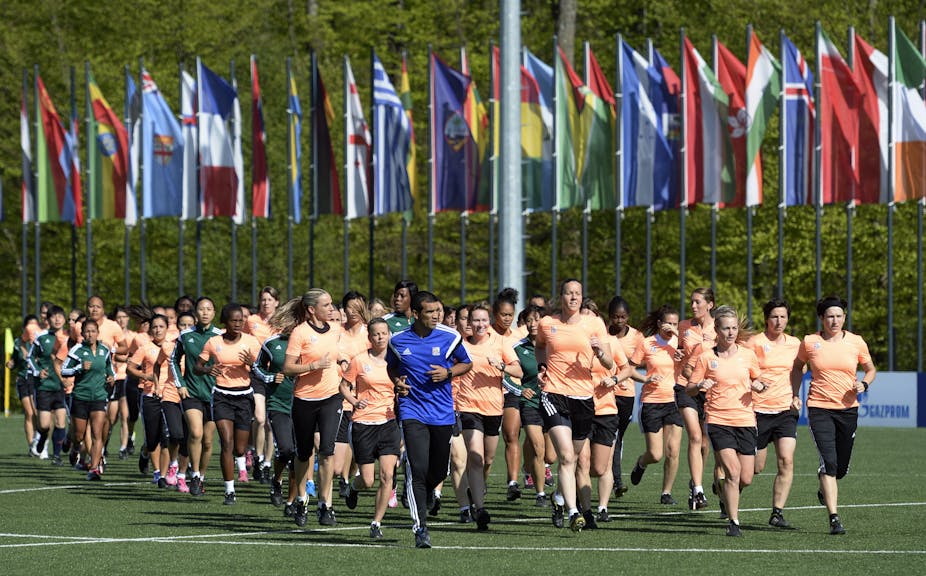With the breaking news of allegations of corruption at FIFA, everybody seems to be talking about what impact it will have on the upcoming World Cups in Russia and Qatar.
But the next World Cup isn’t in Russia or Qatar, it’s in Canada. The FIFA Women’s World Cup kicks off on June 6 and the complete lack of discussion of how the crisis at the top of football will affect the competition further trivialises the women’s game. Corruption needs to be eliminated from FIFA, and we must remember in doing so that the organisation is not just responsible for the men’s game, but for women’s football too.
It’s worth noting that while FIFA been accused of receiving bribes totalling US$150m, the body has been simultaneously starving the women’s game of funding and investment.
Achieving against the odds
The seventh women’s World Cup takes place in the same year FIFA celebrates its 111th birthday, although I doubt there will be much celebrating going on in light of the recent arrests. It’s actually quite surprising to realise that the first men’s World Cup was staged in 1930, which means that in 85 years there have been just seven women’s competitions.
This is perhaps no surprise, given that in 1921, Britain’s Football Association banned women’s football altogether “in light of complaints made” about the problems they could experience as a result of playing.
In this century, FIFA has shown its blasé attitude towards women footballers by making them play on artificial turf for all their World Cup games, despite the face that no one would dream of making male players do the same. As US footballer Megan Rapinoe has argued:
FIFA made a $338m profit on the 2014 Men’s World Cup. To say that it’s not logistically possible to install real grass at all the stadiums is not acceptable.
There is no doubt that this will have an impact on the the games played, which could play into pre-established prejudices against the quality of women’s football. How are women supposed to prove that they can play just as well as the men (if not better) if it’s literally not a level playing field?

Despite all this, members of the English women’s team certainly seems to be campaigning successfully to receive the attention they deserve. It’s also encouraging that the Canadian Soccer Association and Canada’s sports minister have already responded to the allegations made against FIFA and are making attempts to prevent this news negatively affecting the Women’s World Cup. Indeed, Canada is a world leader in the promotion and protection of women’s rights and gender equality.
Women’s football is still an arena that highlights women’s quest for equality. As the UN says, “human rights are women’s rights and women’s rights are human rights”. That applies as much on the football field as is does anywhere else.
Once again, women are forced to achieve against adversity to prove to the world that they can achieve success no matter what barriers – be they artificial turf, a breaking news story about corruption, lack of investment or negative public perception – are imposed on them.

